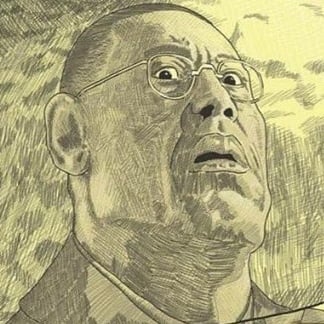You gather together around a table, either in person or virtually, to do 2 things, to tell a collaborative improv story where dice are used to determine how it plays out and changes, and to play a strategic war game where you move your characters on a grid to fight opposing forces, where dice are used to determine how attacks and actions play out.
One guy makes some shit up, you roll dice to fight those monsters. Basically just collaborative imagination.
Playing pretend with rules
I’d have gone with “fantasy improv with dice”.
We do drugs and worship the Devil, sometimes we sacrifice virgins. That’s why D&D players are usually nerds, because you never know who you’re going to need to sacrifice.
Choose your own Adventure Book: Multiplayer edition
Also one of your friends is the author.
The math is much simpler than it appears. You roll the die and add some other numbers. If you are using an app, you push the button to roll and add.
Watch the recent DnD movie as just a fun fantasy heist movie, then watch some of the video breakdowns out there of the many implied DnD mechanics within the actions as well as all the Easter eggs. Now rewatch and imagine a group of friends around a table playing it out.
It’s a way to tell stories in a fantasy (-ish, depending on what rules you’ve laid out for the universe) setting.
It’s a lot of fun with friends, but you can still use the rules to write a story by yourself, if you’re so inclined.
You can also make up your own rules if you like.
It’s basically just collaborative storytelling (barring if your single player-ing it, then it’s just story writing).
You could defs jump in and give it a try. There’s a lot of stuff to read at first, but the more familiar you get with it, the easier it goes.
This is how I describe it as well.
I usually tell people it’s like collab storytelling around the campfire, the rules are used as needed to create risk and tension, but aren’t something you need to know right away
There’s a lot to it! But I think I have a good start…
In DnD, you and a group of people are imagining things + crafting a story together.
As a player, you can be any type of character in this story, though there are often boundaries that depend on the group (for instance, youre unlikely to be a 43 year old human computer programmer with a hobby of collecting faberge eggs if the story you’re taking part in happens to be in a Lord Of the Rings’ Middle Earth-style world - instead, you might be a svelt dwarf with a peculiar love of elven music).
You determine what your player does in a variety of situations, from mundane to fantastical. If there’s something you’d like to do, there’s a way to do it that’s (somewhat) balanced and fair for everyone else participating. For instance, you can’t just declare you’re the strongest and destroy all of the goblins - you have to prove that by rolling dice. Players interact according to guidelines and rulesets.
One of the people in your group acts as the Dungeon Master. Ideally, they essentially control everything else about the game - the setting (they’ll describe the city you’re in, how a cavern wall feels cool to the touch, the scars on the face of an orc you’ve battled before, the enormity of rhe giant in the distance, etc) and, when interacting with aspects of the game (shopkeeps, opponents, wildlife, sentient flora, elder gods, ferrymen, etc), they’ll become those aspects of the game and role play accordingly. These also follow the same guidelines and rules you follow - so a goblin horde cannot just overtake your party, they’ll have to prove that by rolling dice and the like against you all in combat.
I hope that helps a bit!
Lot of great explanations, but I would add, for the non scary part, because it goes like that most of the times for me : the DM figures out the rules, you just assume a cool character and tell your DM what you want to do in the situation they described. :) At least, that’s how I do it, I tell my new players they don’t have to know any rules, I’ll tell them as we go, and the only thing they need to bring is their imagination. And they learn the rules as we go, often they’re the ones who want to discover them, as the rules are “cool stuff their character can do”.
A short, simple explanation: it’s kinda like a classic fantasy book except you make all of the decisions for one character. The DM isn’t quite the same as an author because he mostly controls how the world reacts to the players and the events that happen as you travel, but the players are all essentially the protagonists of the story
Whenever there’s a chance for failure, you roll dice to see if you succeed. Some characters are better at certain actions than others are so the game works best when the players cooperate
There’s also a tactical aspect and some resource management to the game, but you can be eased into that without issues
One person controls everything (mostly), everyone else controls their characters intentions.
The players fill out their character sheets which include stats, background, etc.
You tell the DM what you want to do, the DM will tell you if its possible or not. If it’s difficult, you’ll roll a D20 dice, and the DM will decide if it’s good enough based on your stats.



